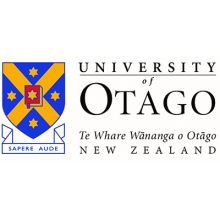
Peking University was recently described by China’s president, Xi Jinping, as the “first place to study and spread Marxism in China”. But its current crop of Marxist students are apparently less popular with authorities because of their support for trade unions in the country’s manufacturing sector. This autumn, the university’s Marxist society has been unable to re-register for the new academic year because it did not have backing from teachers, the Financial Times reported on 24 September. That came in the wake of the arrest of 40 students in Shenzhen in July – among them Peking Marxist society member Zhan Zhenzhen – after worker protests that month, the FT said. No explanation has been given for the lack of support from within Peking for its Marxist society, students said. However, universities in the self-identified socialist state are “now under pressure to embrace ‘Xi Jinping thought’”, the FT claimed, with the ideals of social struggle espoused by the 19th-century German political theorist apparently becoming less essential to the cause, it seems.
Students at Otago University are in uproar after it emerged that the “burglar” responsible for pinching their beloved cannabis bongs was a university proctor, the New Zealand Herald reported on 24 September. Protests were due to be held over what students called the “outrageous behaviour” of Dave Scott, who entered student flats without permission to confiscate a number of water pipes and bongs worth about NZ$400 (£203). “Because they weren’t home, the flatmates didn’t know what had happened to the pipes and assumed they had been robbed,” the paper reported, via student magazine Critic Te Arohi. The university, however, was unapologetic about its “bong burglar”. While admitting that the action was “unusual and unlikely to be repeated”, a spokesman said that Otago stood by the “low-level intervention” and underlined Mr Scott’s claim that he was “focused on helping students gain degrees and not criminal convictions”.
A University of Sheffield research scientist is being hotly tipped to win television’s Great British Bake Off. Rahul Mandal, a research associate at the university’s Nuclear Advanced Manufacturing Research Centre, was described by Smooth Radio’s website on 23 September as the “breakout star” of this year’s Channel 4 show, having “won fans over with his constant apologies and quirky attitude”. “He’s pretty darn good at baking too,” it added. The 30-year-old began baking only seven years ago, when he moved to the UK from Kolkata to take a PhD at Loughborough University. Yet even as his skill grew, the “potential winner” kept his culinary activities under wraps from his doctoral peers. Not until a Sheffield colleague heard about his baking prowess was he convinced to apply to enter the fabled tent. With Dr Mandal already billed by The Guardian as the “new Nadiya” – after the popular “Yorkshire Asian baking genius” who won in 2015 – does a new career as a baker beckon for the nuclear physicist?
Not everyone can aspire to the dizzy culinary heights reached by Dr Mandal. Apparently, the kitchen skills of today’s students are so poor that a British supermarket chain has seen a gap in the market for ready-made scrambled eggs. According to the i newspaper, the £1.50 microwavable pouch, which is made with free-range eggs as well as “a dash of milk and seasoning”, can be cooked in just 90 seconds, the chain says, which would surely appeal to late-rising students who need a quick breakfast before their 2pm lecture. It’s less clear if students are likely to take the advice of Iceland’s head chef “to serve on seeded bread with smoked salmon”. However, even though ready-made scrambled eggs seem a bit unnecessary, surely the dish represents a step up from Pot Noodles, the student staple of 20 years ago?
Although this year’s Times Higher Education World University Rankings takes in more than 1,250 universities, the number is still somewhat short of the estimated 20,000 higher education institutions there are thought to be in the world. But does being placed in the ranking allow an institution to claim that it is in the top 5 per cent globally? Probably not, according to the UK consumer group Which?. The group rapped some universities on the knuckles last week for making similar extrapolations. Which? said that such claims were “potentially misleading” because they assumed that a ranked institution was better than all those that were not on the list (some of which are excluded not on the grounds of quality but rather eligibility criteria such as not teaching undergraduates). However, the University of Oxford, top again this year, is probably on safe ground to say it is among the world’s best.
Register to continue
Why register?
- Registration is free and only takes a moment
- Once registered, you can read 3 articles a month
- Sign up for our newsletter
Subscribe
Or subscribe for unlimited access to:
- Unlimited access to news, views, insights & reviews
- Digital editions
- Digital access to THE’s university and college rankings analysis
Already registered or a current subscriber? Login







